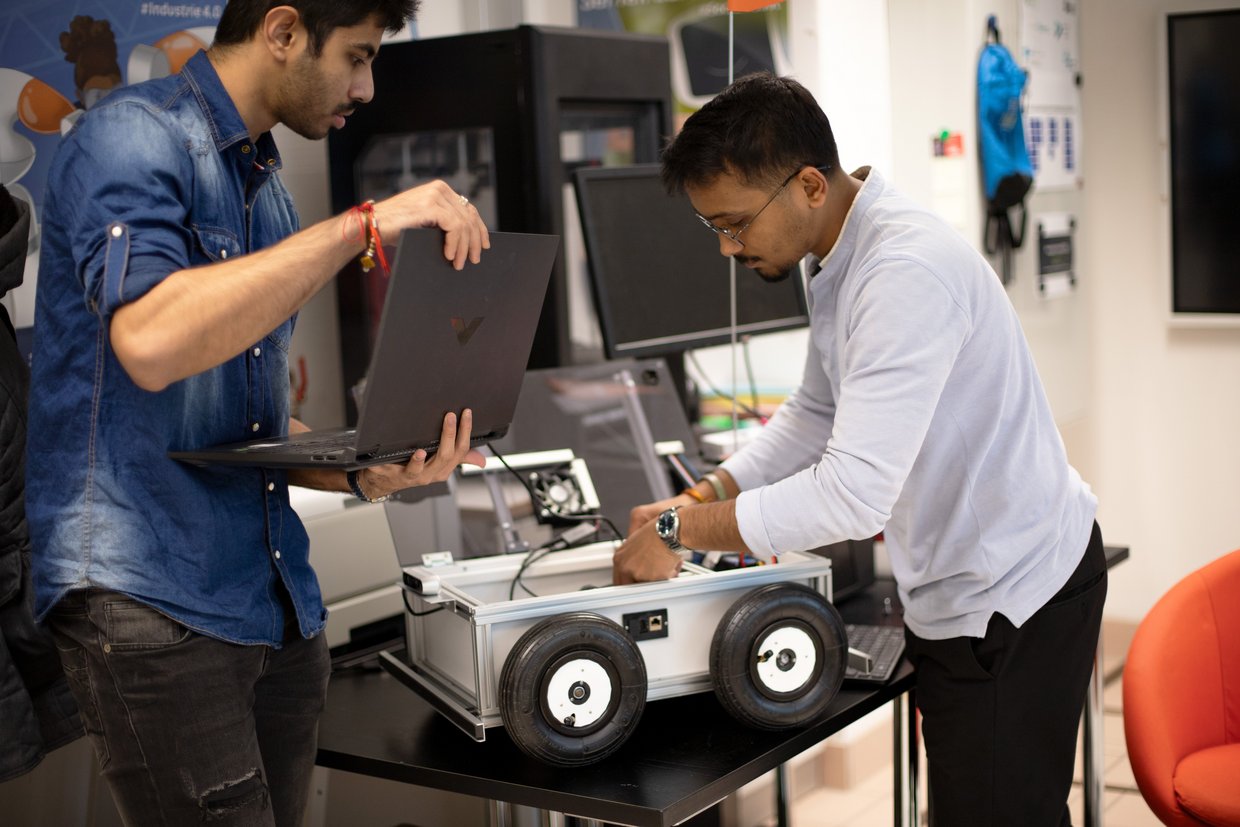A new project called “SUAS PREMIER - Professional Academy” aims to help better integrate international engineering graduates into the domestic job market. The target group is international graduates who have obtained their first university degree abroad and are looking to start a career in Germany. “This also includes our foreign Master's graduates,” says Frank Schrödel, Professor of Drive, Automation and Robotics Technology at the Faculty of Mechanical Engineering. The project manager is Jayabadhrinath Krushnan, himself a graduate of the English-language Master's degree course in Mechatronics and Robotics and now working as a research assistant.
Specifically, the aim is to provide participants with technical, practical, linguistic and intercultural skills in a three-month intensive course on site, in order to then introduce them to the German job market through job application training. The course is divided into three modules. At the end, they receive a certificate from the university, which makes the qualifications they have acquired transparent to potential employers. The qualification is tailored to the needs of regional companies. “Our participants receive very practical engineering training in the laboratory,” says Prof. Schrödel. And this is exactly where the compact course comes in. The university cooperates with the practical partners GFE - Gesellschaft für Fertigungstechnik und Entwicklung, Adtran Networks SE and Mehnert Lab. The aim is for participants to get to know local companies on site.
SUAS PREMIER is designed for 15 participants per year. A total of 25 universities offer this program in Germany, with Schmalkalden University of Applied Sciences being the only one in Thuringia. According to Schrödel, the teaching also differs at the various universities.
The project is being funded for five years by the German Academic Exchange Service (DAAD) under the “Profi plus-Akademische Anpassungsqualifizierung für den deutschen Arbeitsmarkt” funding line with funds from the Federal Ministry of Education and Research (BMBF).

